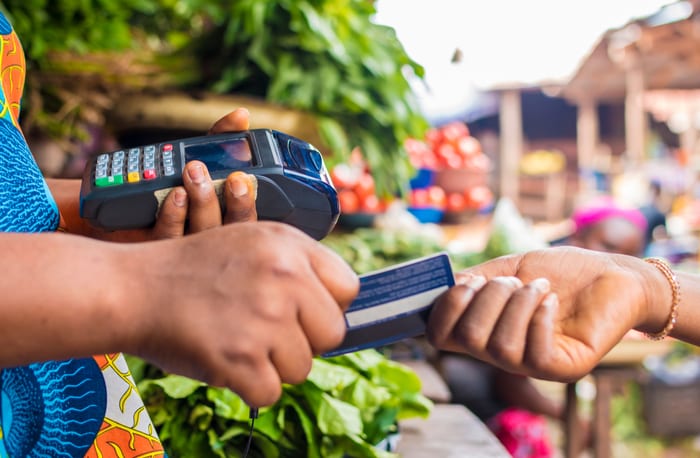Go to any major city in Nigeria, from the bustling streets of Lagos to the vibrant markets of Kano, and you’ll witness a subtle yet profound transformation happening in the way people manage their money. The era of solely relying on brick-and-mortar banks, with their often long queues and limited reach, is steadily giving way to something far more agile, accessible, and exciting: Fintech.
At its core, “Fintech” is simply financial technology. It’s the application of cutting-edge tech to deliver financial services. But in Nigeria and across Africa, it’s so much more than just a buzzword. It’s a powerful force driving financial inclusion, empowering individuals, and fueling economic growth in ways once thought impossible.
So, what exactly do these fintech companies do that makes them such game-changers on the continent? Let’s break it down, with a nod to how these platforms are contributing to this revolution.
1. Reimagining Payments and Transfers: Beyond Cash and Queues
Remember when sending money to a relative in another state meant a trip to the motor park or a bank branch, often with delays and sometimes, security concerns? Or perhaps the endless queues just to pay your electricity bill? Fintech has virtually eradicated these pain points.
What they do: Fintech companies build intuitive platforms that enable seamless, instant, and often cheaper payments and transfers. This includes everything from:
- Mobile Money & Digital Wallets: Think of the popular OPay and PalmPay, or even the established M-Pesa in Kenya. These apps turn your phone into a portable bank, allowing you to send money, pay bills, and even purchase airtime with just a few taps. It’s the ultimate convenience for the everyday Nigerian, whether they’re a market woman accepting payments via POS or a student splitting bills with friends.
- Payment Gateways: For businesses, both big and small, accepting payments online used to be a nightmare. Companies like Flutterwave and Paystack (now part of Stripe) have revolutionized this. They provide robust payment infrastructure that allows businesses to accept payments from various sources – cards, bank transfers, mobile money – effortlessly. If you’ve ever bought something online from a Nigerian e-commerce store, you’ve likely interacted with their technology without even realizing it.
- Cross-Border Remittances: The African diaspora sends billions of dollars back home annually. Fintechs like Chipper Cash and Leatherback are making these remittances faster and more affordable, bypassing traditional expensive channels. This is crucial for families relying on support from abroad and for businesses engaged in international trade.
2. Democratizing Access to Credit: Loans at Your Fingertips
Access to credit has historically been a significant hurdle for many Nigerians, especially small business owners and individuals without traditional collateral or a formal credit history. Banks often require extensive documentation, lengthy processes, and collateral that many simply don’t have.
What they do: Fintechs are leveraging data and technology to offer quick, accessible loans.
- Digital Lending Platforms: Companies like Carbon (formerly Paylater) and FairMoney provide instant loans to individuals and SMEs based on alternative data points, like phone usage, transaction history, or social media activity. This means a tailor in Aba, who might not have a formal bank account or collateral, can get a short-term loan to buy more fabric during a busy season, or a student can get emergency funds.
- Embedded Finance: This is the latest trend. Imagine applying for a loan directly within an e-commerce app when you’re about to make a large purchase, or receiving credit directly through a logistics platform to expand your delivery fleet. Fintech infrastructure providers are allowing non-financial companies to seamlessly offer financial services.
3. Making Savings and Investments Inclusive: Growing Your Kobo
Saving and investing have often been seen as privileges for the wealthy or those with complex financial knowledge. Fintech is changing that narrative, making wealth creation accessible to everyone.
What they do: They offer user-friendly platforms for saving and investing, often starting with very small amounts.
- Digital Savings & Investment Apps: PiggyVest and Cowrywise are prime examples. They encourage a savings culture through automated savings plans, goal-oriented savings, and micro-investment opportunities in mutual funds, real estate, or even dollar-denominated assets. This allows a young graduate to start building wealth by saving a few thousand naira weekly, protecting their money from inflation.
- Wealthtech: These platforms provide tools and insights that empower individuals to manage their finances better, from budgeting tools to automated investment advice.
4. Broadening Financial Inclusion: Reaching the Unbanked
Perhaps the most profound impact of fintech in Nigeria and Africa is its role in bridging the financial inclusion gap. Millions of people, particularly in rural areas, remain unbanked or underbanked. Traditional banking infrastructure simply hasn’t reached them.
What they do: Fintech companies leverage mobile penetration and agent networks to bring financial services to remote communities.
- Agency Banking: Platforms like Moniepoint empower local businesses and individuals to become financial agents, offering services like cash deposits, withdrawals, and bill payments in their communities. This means a small shop owner in a remote village can effectively act as a mini-bank, bringing vital financial services closer to people who would otherwise have to travel long distances.
- Digital Identity & KYC: Streamlining the “Know Your Customer” (KYC) process through digital means is crucial for onboarding new users efficiently and compliantly, bringing more people into the formal financial system.
The landscape is constantly evolving, with new trends like embedded finance, open banking, and the increasing utility of blockchain technology for cross-border payments shaping the future. Fintech companies in Nigeria and Africa are not just adopting these global trends; they are adapting them, innovating, and often, pioneering solutions unique to the continent’s challenges and opportunities. They are, in essence, building the financial infrastructure for a digitally empowered Africa.

